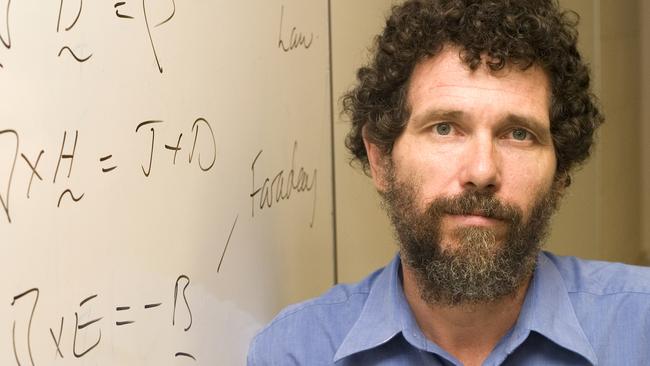Great Barrier Reef threat overstated, says Queensland professor
SCIENTISTS are in agreement that the Great Barrier Reef is in dire straits. But a lone Queensland professor says we’re all being duped.

QLD News
Don't miss out on the headlines from QLD News. Followed categories will be added to My News.
ROGUE professor Peter Ridd claims scientists have “overhyped” reports of up to 50 per cent loss of coral cover on the Great Barrier Reef.
The Townsville-based marine geophysicist said his own review of Australian Institute of Marine Science research on coral loss and calcification found those studies to be incorrect, with factual and statistical errors.
Prof Ridd believes reporting of those findings is a swindle on the public and policy, causes damage to the $6 billion reef tourism industry, and sullies Australia’s reputation as a custodian of the natural wonder.
REPORT CARD: Diplomats’ verdict on Reef
ON THE MEND: New hope for the Reef
His lone-wolf voice has won support among cane farmers and tourist operators but defies universal consensus by 150 of the world’s leading coral reef experts about the dire state and fate of the Reef.
“I agree we’ve got to protect the Reef,” the James Cook University professor said.
“But overhyping the death of the Reef when the facts don’t stack up, when studies are incorrect, makes me think we’ve all been swindled.
“I’m predicting that in the next AIMS long-term monitoring study, which comes out every five years, we’ll be witness to a remarkable-to-astonishing bounce back in coral cover on the Reef.”
According to the AIMS report, about half of the Reef’s coral died between 1985 and 2012, with cyclones, starfish, coral bleaching from rising sea temperatures and run-off blamed for the loss.
Prof Ridd said the findings did not take into account one of the worst cyclones to hit the reef – Cyclone Hamish in 2009 – which wiped out half the Reef system.
“Coral recovers fast; six years on and more than one-third of that total loss would be alive and flourishing,” he said.
“And guess what, cyclones are part of life’s natural cycle.”
Prof Ridd accepted that some areas had suffered irreparable damage, but “largely, the GBR is in good shape”.
Lady Elliot Island Eco Resort owner Peter Gash, who joined the campaign to stop the in-danger listing of the Reef, said scientists “came out swinging” in the AIMS report.
“The scientists made out the Reef is half dead, but they picked a moment in time when a fierce cyclone had tracked down the length of the Reef and did enormous damage,” the 25-year Reef tourism veteran said.
“I challenge anyone to go out to where Hamish hit – it has almost all completely recovered.”
AIMS director John Gunn told The Courier-Mail he did not wish to respond to Prof Ridd’s commentary.
“In the past, (Prof) Ridd has provided scientific submissions to the journals that have published the AIMS papers, and his comments have been factually and robustly rebutted,” Dr Gunn said.
“The papers he has criticised are accepted as seminal pieces of work.”


